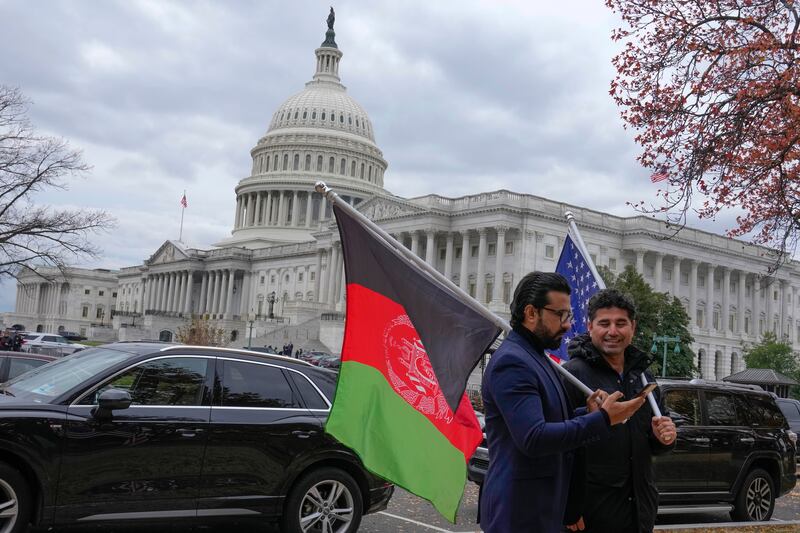In August 2021, the United States ended two decades in Afghanistan. Chaos ensued as the Taliban took over much more quickly than anticipated. Tens of thousands of Afghans who worked with the U.S. military in a variety of capacities were evacuated to the United States, along with members of their families, under Operation Allies Welcome.
Before being admitted to the U.S. on humanitarian parole, the Department of Homeland Security wrote that evacuees were subject to an extensive, multilayered vetting process, including “biometric and biographic screenings conducted by intelligence, law enforcement, and counterterrorism professionals from (the) Department of Homeland Security and the Department of Defense, as well as the Federal Bureau of Investigation, National Counterterrorism Center, and additional intelligence community partners.”
The humanitarian parole, or temporary protected status is only good for two years and Congress has failed to take action on behalf of our Afghan allies. The Afghan Adjustment Act would have created a pathway for permanent legal residency but could not get out of the Senate Judiciary Committee. Supporters of the proposal were hoping it would then pass in the omnibus bill, but it was pulled out prior to passage. The bill died when Congress adjourned in late December.
In spite of overwhelming bipartisan support, proponents of the bill say their efforts were thwarted by one man: Republican Sen. Chuck Grassley of Iowa, the top Republican on the Senate Judiciary Committee.
“What we’re seeing is the Republicans are really in the way. And that’s disappointing, because a lot of them told us they would be with us,” said Shawn Van Diver, a Navy veteran and head of #AfghanEvac, a coalition of more than 180 organizations supporting Afghan resettlement efforts. “It’s really frustrating to me that one guy from Iowa can block this,” he told The Associated Press.
Grassley and other opponents argue that vetting is inadequate, even though the bill would have required additional screening for applicants. It would have required Homeland Security to maintain “detailed biographic, biometric, criminal, security and interview information for each individual,” plus in-person interviews, resulting in what some call the “most rigorous background investigation process in the entire immigration system.”
It would not have been the first time the United States passed adjustment acts. We did it after the Cuban Revolution, for people fleeing Vietnam and Cambodia, as well as after U.S. military actions in Iraq, welcoming men, women and children to our country. The Afghan Adjustment Act was supported by a bipartisan group of lawmakers, more than 30 retired senior U.S. military officers — including three former chairmen of the Joint Chiefs of Staff — and eight former U.S. ambassadors to Afghanistan.
Kim Staffieri, a co-founder and the executive director of the Association of Wartime Allies, a nonprofit group that helps Afghan allies, called the lack of passage “another slap in the face” to Afghan allies and U.S. military veterans. “It’s unconscionable,” she said.
An NPR/Ipsos poll conducted shortly after the fall of Kabul in late August 2021 found broad support (74%) for resettling Afghan allies in the United States.
Sen. Amy Klobuchar and the lead Republican co-sponsor, Sen. Lindsey Graham of South Carolina, pledged to bring the bill back up again in the new session of Congress starting in January.
“This is the right thing to do,” Graham, an Air Force veteran, told the Senate recently. “There’s no other ending that would be acceptable to me.”
He added: “The people who were there with us in the fight, that are here in America, need to stay. This will be their new home.”
The 76,000+ Afghan refugees now find themselves in legal limbo. If a permanent solution is not found by this coming August, they could find themselves in danger of deportation by the U.S. and execution by the Taliban. This is a bill that Congress needs to take up and pass as one of their first priorities in the new session.
Holly Richardson is the editor of Utah Policy.


